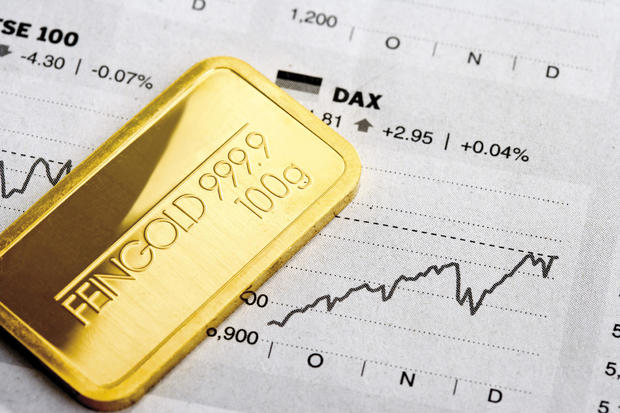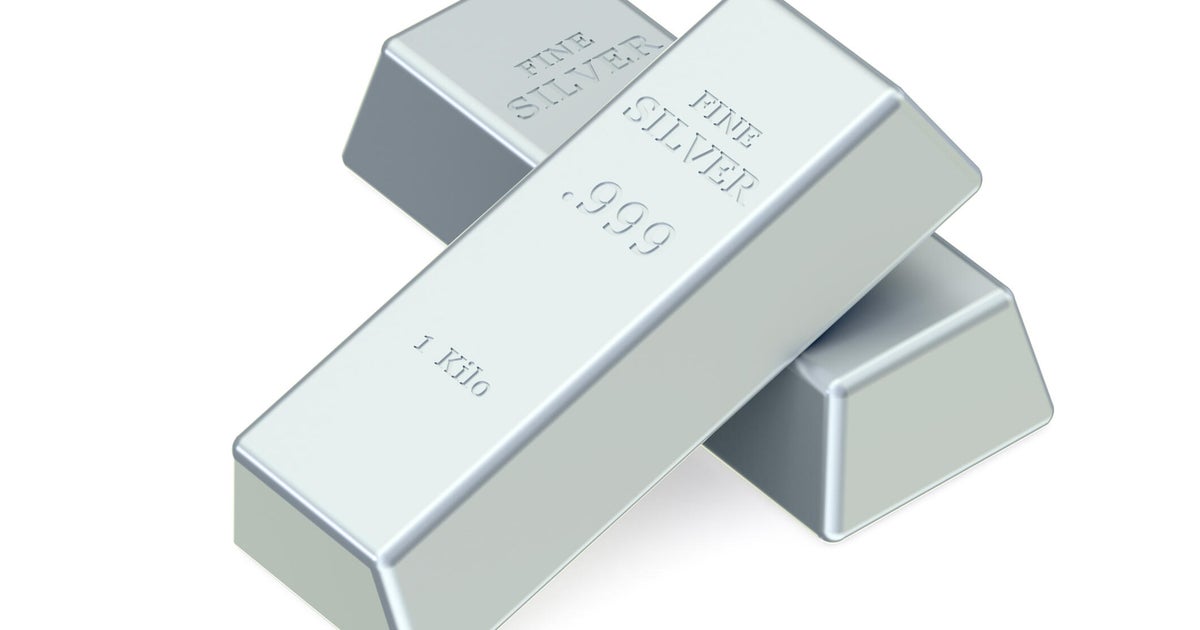Should you invest in gold before another Fed rate hike? Here's what financial experts say
The Federal Reserve is set to meet this month and will continue its fight to tame inflation, which rose slightly in July and now sits at just over 3%. While that could mean another hike to the federal funds rate, we won't know for sure for a few weeks.
Until then, it may be a good time to evaluate your finances — and specifically, your investments.
In times like these, with high inflation and overall economic uncertainty, many investors buy gold as a way to safeguard wealth. Should you consider gold investments, too? Here's what experts had to say.
Learn more about gold investing now with a free information kit.
The case for gold investing
Investors usually look toward gold when things get tough. As Peter C. Earle, an economist at the American Institute for Economic Research, explains, "Gold tends to be popular during periods of uncertainty or economic vulnerability, so, it's not surprising that it has been particularly popular since the start of the COVID pandemic in 2020."
Earle is right. Both 2021 and 2022 saw record-breaking purchases of gold, according to the World Gold Council. And, U.S.-based investors bought a whopping 113 tons just last year alone. This is likely due to high inflation, which peaked at over 9% last June.
"Gold has, throughout history, been a bulwark against monetary debasement," Earle says. "The last two years of inflation at 40-year highs have reminded investors of that."
Curious about gold investing? Explore how gold investing could benefit you.
Should you invest in gold before another Fed rate hike?
Whether you should invest in gold or not depends on your goals. If you're looking for high returns, it's likely not the best path forward.
"Stocks may pay dividends and represent a claim on the future earnings and a company's net assets," says Dan Tolomay, chief investment officer at Trust Company of the South. "Bonds return the investor's principal at maturity and typically pay a periodic interest payment. Gold, by contrast, generates no cash flow."
Still, this isn't necessarily a bad thing — at least for some consumers. If you're looking for a way to simply protect your money's value and safeguard against inflation, for example, the lack of returns may not be a dealbreaker.
As Earle explains, "One of the commonly stated cons of gold is that it doesn't generate a dividend — at least at the retail investor level. It's a weak objection, since typically gold is employed as a hedge, so the primary purpose isn't investment gains per se, but safety of principal."
If you're looking for a good way to diversify your portfolio — particularly if your existing investments are in riskier assets — then buying gold can also be a wise strategy in today's market.
"According to some analysts, the stock market is going to experience choppiness for the remainder of 2023, and gold provides portfolio diversification," says Alex Ebkarian, co-founder of Allegiance Gold. "it is a safe-haven asset that typically has an inverse correlation to the stock market."
Timing your gold investment
The Fed has three more meetings left for 2023, and while current projections don't show a rate hike for September, rate hikes in November and December have a much higher likelihood. In fact, according to the CME Group Fed Watch Tool, there's only an 11% chance the Fed raises its rate at the next meeting. By November, the chance of a rate hike jumps to 45%.
"If the Fed were to hike another 25 basis points, the market could interpret it as indicative that the Fed is worried about a resurgence of inflation, which would probably help the price of gold," Earle says.
If the Fed rate stays near current levels, Phil Palumbo, president at Palumbo Wealth Management, says gold will likely be "in the sweet spot for a strong performance this year."
Not only is there pent-up demand for the metal, he says, but there have also been record-breaking gold purchases by central banks around the world. If those continue as expected, they should keep gold values strong for the foreseeable future.
"We have every expectation that trend will continue this year," Palumbo says. "As the world splits between East and West, and the East desires some insulation from Western sanctions and policies, there is a natural trend for Eastern central banks to sell treasuries and buy gold and begin to limit the use of the US dollar for international transactions. With little prospect of a reconciliation between East and West, it is hard to envision this trend reversing anytime soon."
The bottom line
Gold investments come with several advantages. This type of investment can protect against inflation, serve as a strong portfolio diversifier and safeguard your wealth during uncertain economic times.
If you're not sure whether buying gold is the right move for your finances — or if you're unsure how much gold to invest in — talk to an investment professional. They can help you make the best decision for your long-term goals and portfolio.






